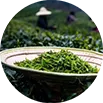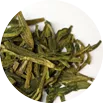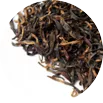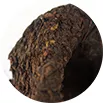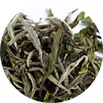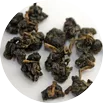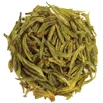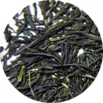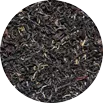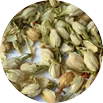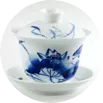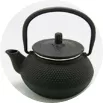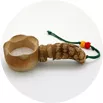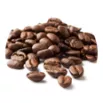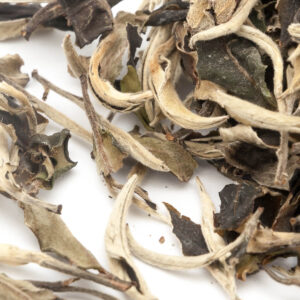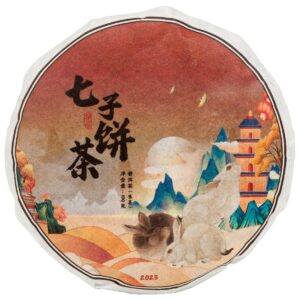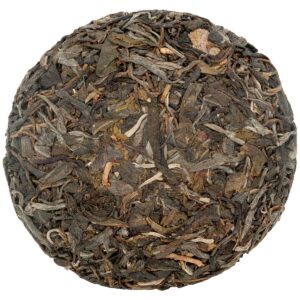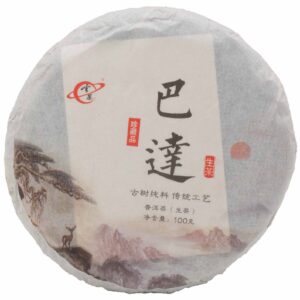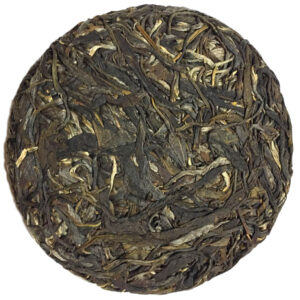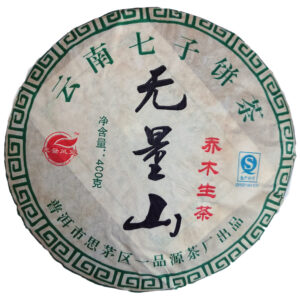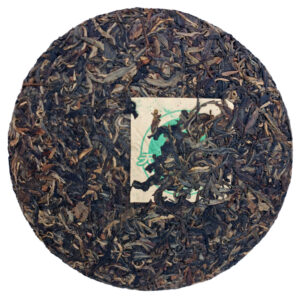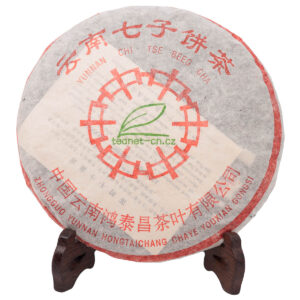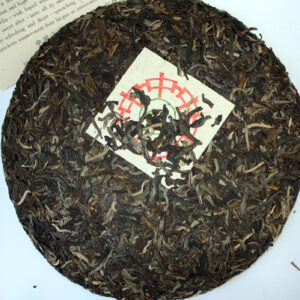Ge Deng Shan 2011 sheng Gushu Bing Cha 200g
Man Zhuan Shan 2011 sheng Gushu Bing Cha 200g
Yi Wu (Man Sa) Shan 2011 sheng Gushu Bing Cha 200g
Mang Zhi Shan 2011 sheng Gushu Bing Cha 200g
Menghai 1980′ sheng Zhuan Cha (7581 packaging) 250g
Yi Wu Mahei 2015 Gushu sheng 200g
Yi Wu Mahei 2024 Xiaoshu sheng Bing Cha 200g
Yue Guang Bai “White Moonlight”
Bada 2017 Gushu Bing Cha 100g
Wu Liang Shan 2012 sheng Bing Cha 400g
Teanet 2004 Bai Hao 357g
Manufacture process of raw puer 生普洱 tea:
Withering: Freshly harvested tea leaves are spread out to wither in a well-ventilated area. This process allows the moisture content of the leaves to reduce and prepares them for the next step.
Fixation/kill-green: The withered leaves are then quickly heated/selfsteamed in a pan to halt any enzymatic activity and to remove any residual moisture. The tea leaves are carefully monitored to avoid over-frying or under-frying.
Rolling: The withered tea leaves are rolled, either by hand or by machine. Rolling breaks down the cell walls of the tea leaves, releasing enzymes and initiating the fermentation process.
Sun-drying: After rolling, the tea leaves are spread out in the sun to dry. Sun-drying helps to reduce the moisture content in the leaves and allows the leaves to absorb some of the natural flavors and aromas of the environment. The drying process can take several hours or even days, depending on the weather conditions.
Pressing: The dried tea leaves are then lightly steamed and compressed into cakes, nests or bricks using a traditional or hydraulic press. The pressing step helps to compact the tea leaves and create a unique flavor profile that is highly sought after by Puer tea connoisseurs.
Storage: The compressed Pu`er tea is then stored in a cool, dry place with clean air to age naturally over time. This aging process helps to develop the tea’s complexity and depth of flavor, and it can take years or even decades to reach its full potential.
Health benefits:
Digestive health: Raw Pu`er tea contains probiotics and enzymes that can help improve digestion and aid in the absorption of nutrients.
Weight loss: Raw Pu`er tea has been shown to help boost metabolism and reduce body weight, making it a popular choice for those looking to lose weight.
Heart health: Raw Pu`er tea contains compounds that can help lower blood pressure and cholesterol levels, which can reduce the risk of heart disease.
Anti-inflammatory: Raw Pu`er tea has anti-inflammatory properties that can help reduce inflammation in the body and improve overall health.
Antioxidant: Raw Pu`er tea contains high levels of antioxidants, which can help protect the body against damage from free radicals and reduce the risk of chronic diseases.


